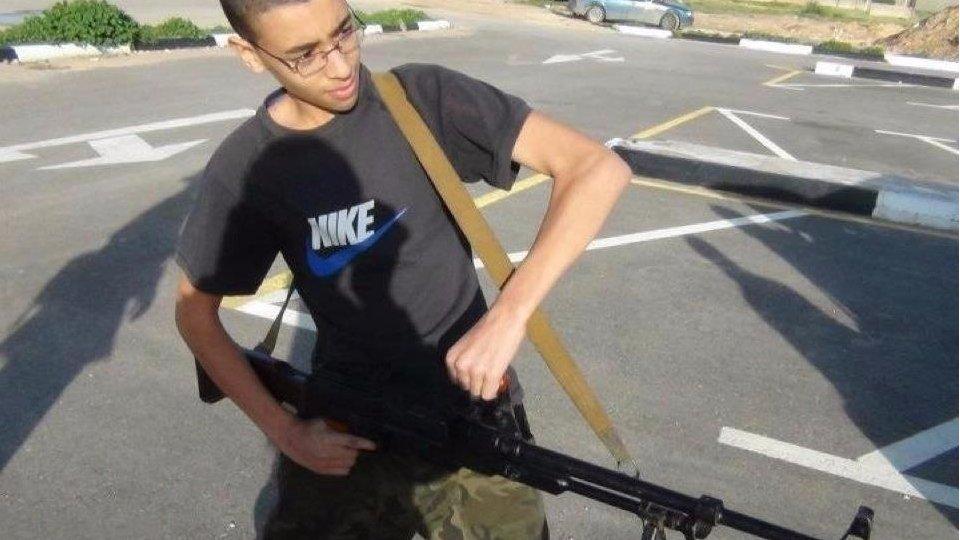Manchester Arena Inquiry: Six wanted for questioning over bombing
- Published
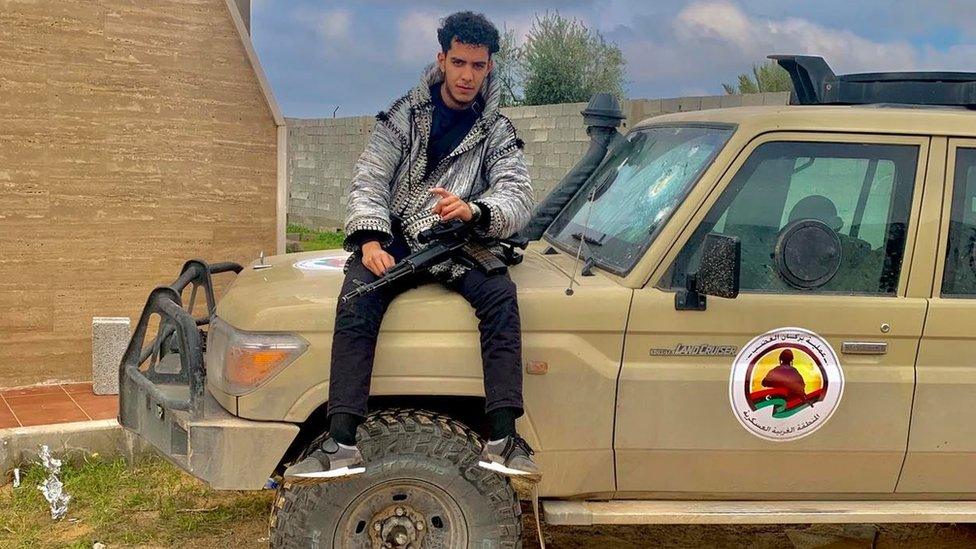
Elyas Elmehdi was an associate of the Abedi brothers
Six people are wanted for questioning by detectives investigating the Manchester Arena bombing, a legal document has revealed.
The parents of the brothers responsible for the atrocity are both suspects, as are two associates.
One of the associates, who was arrested following the attack, was able to flee the UK despite remaining a suspect and being charged with other offences.
Two further men are of interest to police but have not been spoken to.
Salman Abedi detonated the bomb at the end of an Ariana Grande concert on 22 May 2017, killing 22 people and injuring many more.
His younger brother Hashem Abedi, who was central to the conspiracy, was jailed this year after being convicted of murdering all those who died.
The six names, which appear in a ruling published by the public inquiry into the attack, have not been disclosed publicly before.
The ruling followed an application by police to restrict publication of the information - it was successfully opposed by the BBC and five other media organisations.
The media's position was supported by many bereaved families and opposed by none.
Four of the people are wanted as suspects. Two others are what are described as "trace/interview/eliminate subjects", meaning that police wish to trace them, interview them and, if appropriate, eliminate them from their investigations.
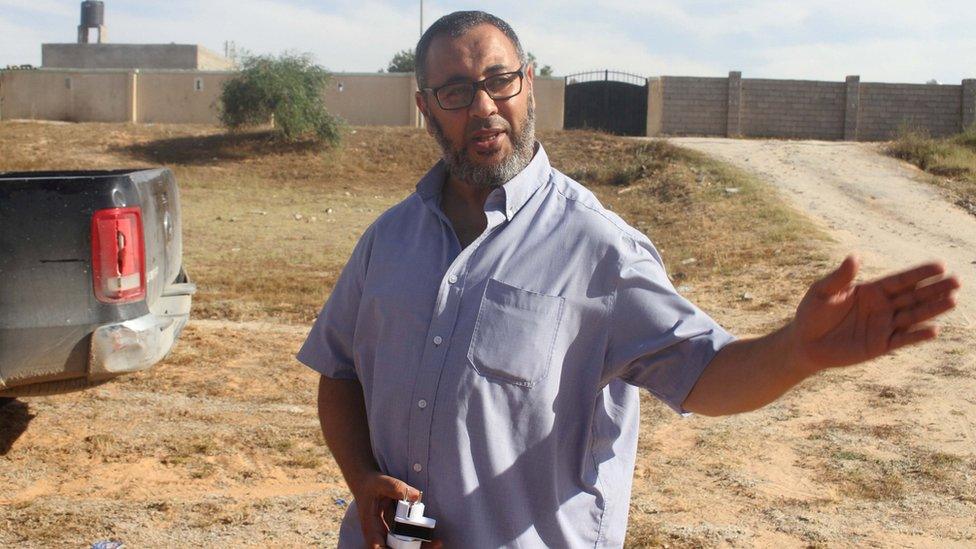
Ramadan Abedi is the father of brothers Salman and Hashem
Ramadan Abedi, father of Salman and Hashem Abedi, is wanted for questioning after his fingerprints were found inside a car used by the brothers to store explosives and bomb-making material.
The vehicle - a Nissan Micra - was owned by the brothers for around 40 hours before they flew to Libya with their father in April 2017. Ramadan has not returned to the UK since.
The car was purchased specifically to store the lethal material, which the two brothers had previously kept in a flat rented in order to prepare their bomb.
While the suicide bomber Salman Abedi was in Libya, the car was parked outside the property of an associate called Elyas Elmehdi, who is also one of the four outstanding suspects.
On arrival back in the UK in May 2017, days before the attack, Salman Abedi went straight to the car and later returned to collect material from it.
The BBC previously revealed that Elmehdi had fled to Libya despite being charged with drugs offences following his arrest early in the arena bombing investigation.
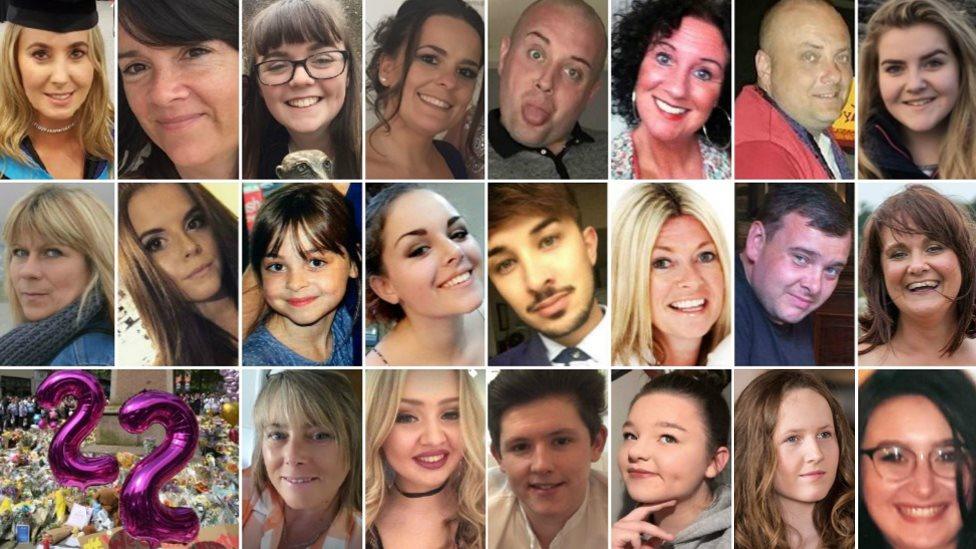
Top (left to right): Lisa Lees, Alison Howe, Georgina Callender, Kelly Brewster, John Atkinson, Jane Tweddle, Marcin Klis, Eilidh MacLeod - Middle (left to right): Angelika Klis, Courtney Boyle, Saffie Roussos, Olivia Campbell-Hardy, Martyn Hett, Michelle Kiss, Philip Tron, Elaine McIver - Bottom (left to right): Wendy Fawell, Chloe Rutherford, Liam Allen-Curry, Sorrell Leczkowski, Megan Hurley, Nell Jones
The ruling reveals that, despite being released following questioning, he remained a suspect and that further evidence was found to connect him to the Micra that contradicts what he said in interview.
Last year he was convicted in his absence of involvement in a drugs conspiracy and given a four year prison sentence.
Greater Manchester Police has not answered questions from the BBC about how Elmehdi was able to flee abroad - more than a year after the bombing - despite being on bail for drugs offences.
On what was supposed to be day one of Hashem Abedi's trial in January, Elmehdi posted an image of himself online stating "they can tell you how I was restricted to doing bits" alongside an emoji of two champagne glasses.
He later posted a photo of himself holding a firearm sitting on a vehicle bearing the logo of a military operation - involving various militias - organised by the so-called "Government of National Accord" in Tripoli, which is battling other belligerents in the Libyan civil war.
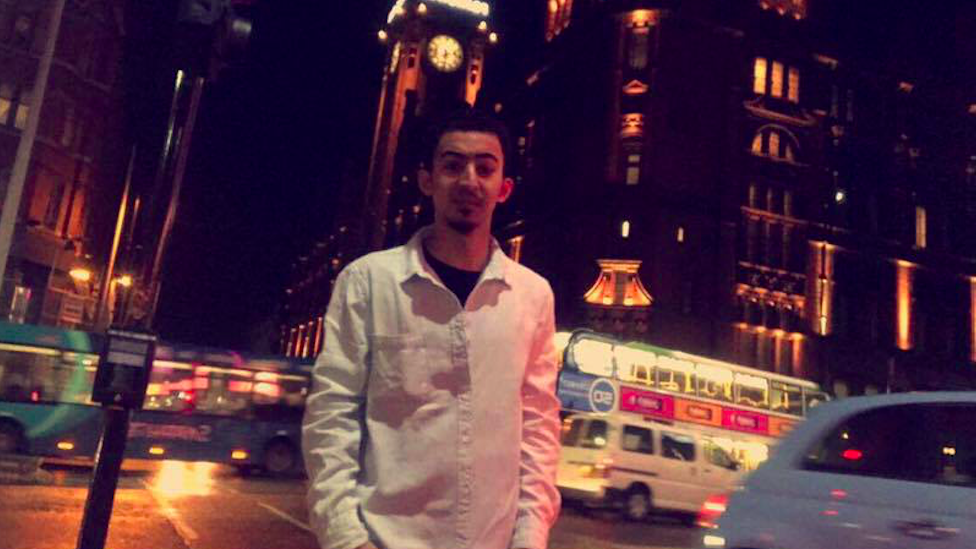
Mohammed Soliman purchased bomb-making chemicals for the brothers
Police also want to speak to Samia Tabbal, the mother of Salman and Hashem Abedi. She too is in Libya.
Mohammed Soliman is the other suspect. He purchased a bomb-making chemical for the brothers, but left Manchester for Libya in April 2017.
The two people that police want to trace are Majdi Alamari, who lives in Libya, and Anas Abuhdaima, whose location is unknown but is believed to be somewhere in the UK.
BBC research suggests that Mr Abuhdaima, who is originally from Manchester, was in the city for a time after the bombing and that he was convicted of a driving offence there in December 2017.
- Published4 November 2020
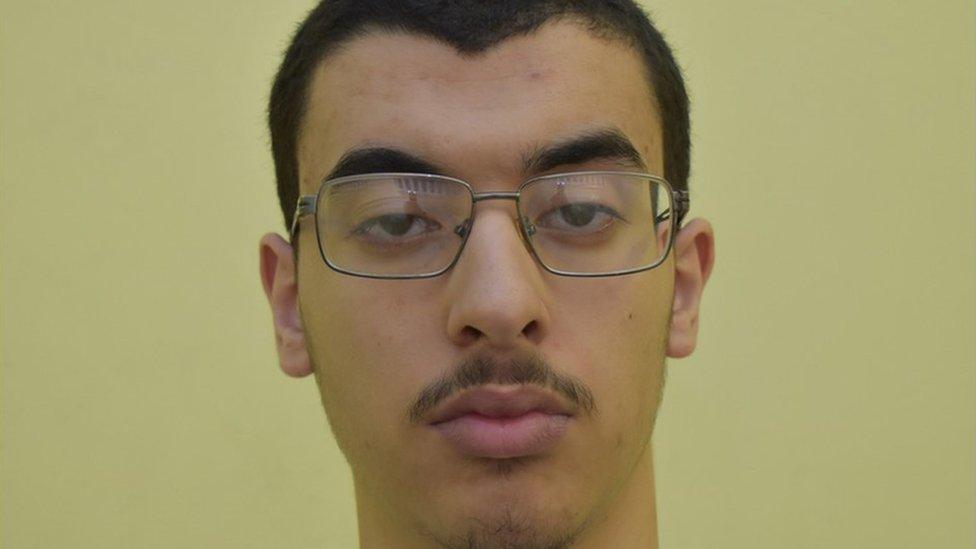
- Published3 November 2022

- Published7 September 2020

- Published17 March 2020
